
Marking 50 Years of Oncology at UofG
This year marks two important milestones in cancer sciences at the University of Glasgow. In 1974, the University’s first Department of Oncology was founded and, thanks to supporters like you, cancer sciences have flourished in Glasgow. Today, we are proud to be part of a national centre of excellence in the fight against cancer.
2024 is also the tenth anniversary year of the Wolfson Wohl Cancer Research Centre. This Centre stands as a testament to the power of collective giving made possible thanks, in part, to the Beatson Pebble Appeal and provides a state-of-the-art facility for life-saving cancer research.
A Pioneering Department
When the University’s Department of Oncology was founded in 1974, it became the first of its kind in Scotland. This ground-breaking department was launched with a grant of £500,000 under the leadership of Professor Sir Kenneth Calman.
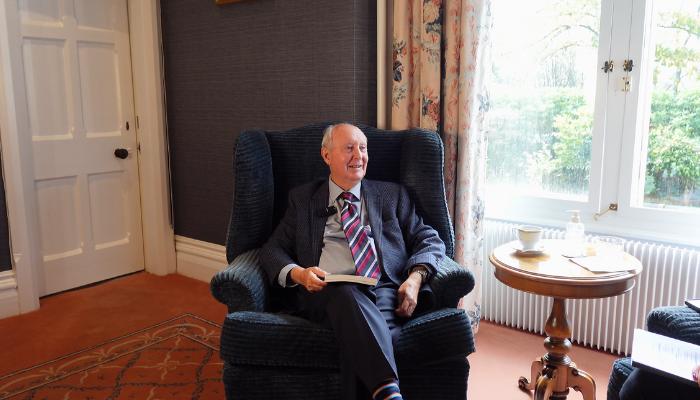
“In the 1970s, I was a trainee surgeon in the Western Infirmary in vascular and transplant surgery and I also had significant research experience,” explains Sir Kenneth. “I then had the opportunity to spend a year at the Institute of Cancer Research in London. When I came back to Glasgow, the Cancer Research Campaign was providing the University with funding to start the first oncology unit in Scotland.
“They then had to find someone to run the Department and Sir Andrew Watt Kay, who was Professor of Surgery at Glasgow, asked the team if they thought I could do it. I was only 32 at the time and they offered me the job.
“I started with an office with nothing in it, not even staff! It was an exciting time, building a team and building patients and families together was a wonderful experience – one of my greatest experiences.”
A Ground-Breaking Approach
The young Sir Kenneth quickly realised that those experiencing cancer and their loved ones were an important source of learning. “I found that patients and their families knew a lot more about cancer than I did,” he explains. “We invited a group to my house so that we could sit down and talk, and it was great to hear how we could improve things. We set up monthly meetings at Gartnaval General Hospital where the patients and their families could share their experiences. They even wrote leaflets for each other to share important information.
“The meetings meant that the patients were able to talk to the clinical staff in a different way, rather than being separate. They also brought me closer to the patients and helped me understand their problems better. We could also explain the research that was happening at the University, get the patients involved and show them what it could mean for patients.
“We had 35 patient groups from Oban to Dumfries and we started to use the phrase ‘tak tent,’ meaning ‘take care.’ We created a logo to help communicate our message, it was made up of four points to represent surgery, radiotherapy, chemotherapy and immunotherapy and it was linked together with an O for oncology. We used it on our booklets and had badges and ties and it was a way of bringing everything together.
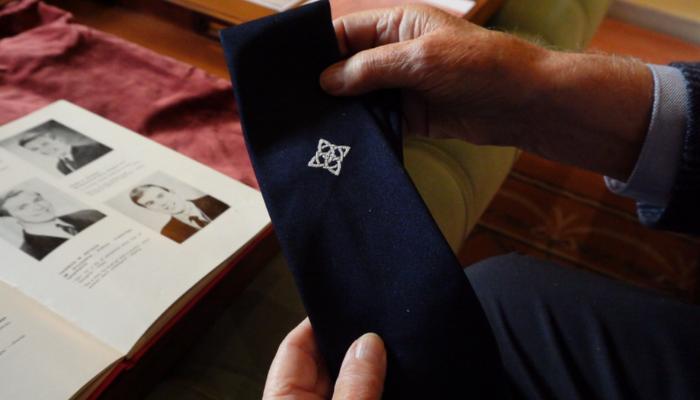
“The Tak Tent movement made me realise that there are ways of working that we hadn’t thought about before. It was wonderful for me and powerful for the patients and their relatives.”
Tak’ tent o’ time ere time be tint
Take care of time, or it will pass
This patient-centric approach remains at the heart of Glasgow’s ethos. Professor Chris Halsey, Head of School of Cancer Sciences, describes the importance of focusing on the patient as well as the disease in cancer research. “It’s incredibly important to think of the patient as well as their disease and that’s one of the key things that we do in the School of Cancer Sciences,” she explains. “We know that we can’t fully understand the whole picture if we study cancer in isolation.
“Patients bring so much to this journey, including showing us the huge variations in how cancer behaves in different patients. Cancer is not a one-size-fits-all phenomenon. We need to study cancers in their personalised context of the patient – personalisation of cancer care has become a mantra over the last 10-15 years in cancer research.”
The City of Glasgow
Glasgow has played a pivotal role in advances in cancer research and treatment. Cancer has been a focus here since the city established one of the UK’s first cancer hospitals, led by the pioneering George Beatson.
Professor Halsey credits part of Glasgow’s success to the engagement of patients from the West of Scotland. “One of the reasons Glasgow has been so crucial to cancer research over the last 50 years is the close ties between our clinical academics and researchers, as well as the support of an engaged patient community. Many people willingly participate in trials, provide samples and share their experiences. This collective effort has been a defining feature of our work here.”
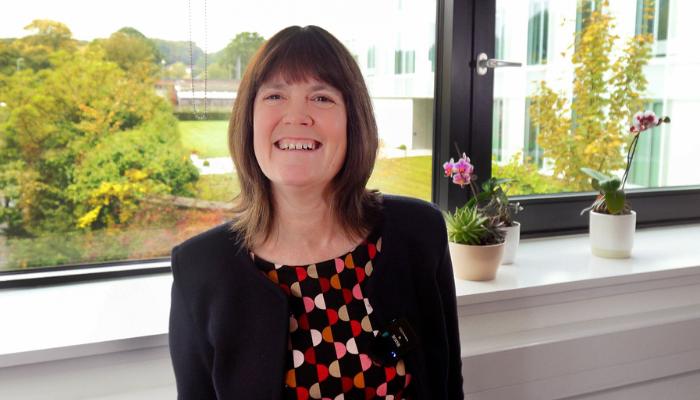
Glasgow’s location is also significant due to the high cancer rates in the West of Scotland. “Scotland has some of the UK’s highest cancer incidence rates and, unfortunately, some of the poorest survival outcomes,” Professor Halsey notes. “The causes are complex, but we’re acutely aware of the impact of health inequalities here. Addressing these factors remains essential to our mission.”
Life-Changing Gifts
Patient engagement, rooted in the department's earliest days, has also been instrumental in driving the progress of cancer sciences at Glasgow. “Our patient population helped in a huge way by raising money for the Wolfson Wohl Cancer Research Centre through the Beatson Pebble Appeal,” says Professor Halsey. “Lots of individual donations contributed to a transformative sum that has allowed us to build this fantastic building.”
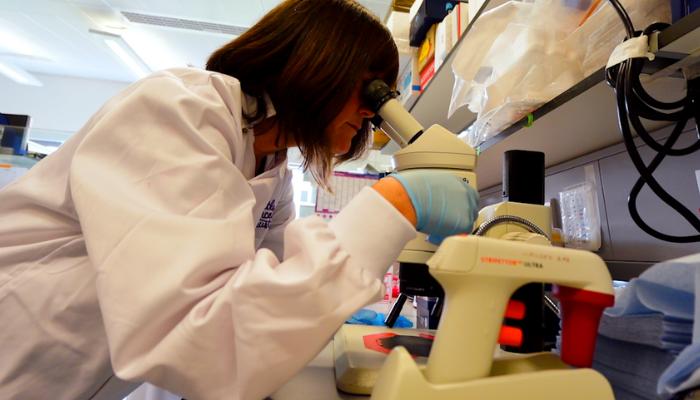
Beyond creating spaces for cutting-edge research, your gifts to cancer sciences are fundamental to advancing life-changing and life-saving research. With your support, we continue to recruit world-class talent, invest in the latest equipment and fund novel research ideas.
Gifts to the University drive forward improvements in prevention, diagnosis and treatment – thank you. To learn more about how your gifts are saving lives watch our short film.
Donate to cancer sciences at the University of Glasgow
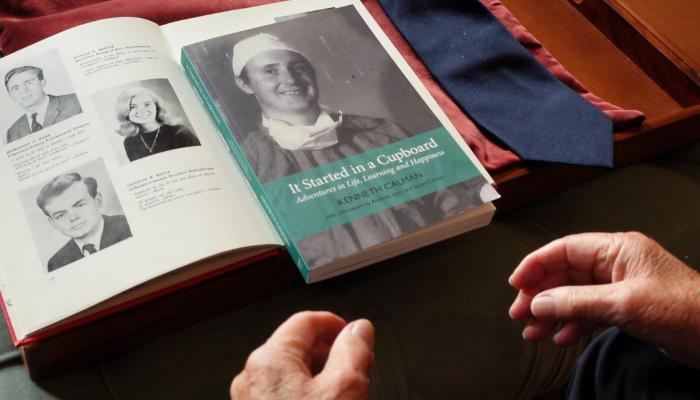
Professor Sir Ken Calman's autobiography "It Started In a Cupboard" details his life story as well as his varied and interesting career.

